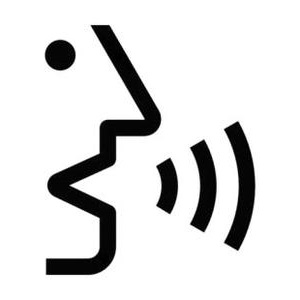Trump Makes It Easy to Fire Any Federal Employee
Who Speaks Out about Illegal Activities
Firing Federal Employees Quickly and Easily May Not Be a Good Thing for the Government
The Good Men Project, July 21, 2018 by Dawn Westmoreland
There are pros and cons to the new Executive Order that was approved in May 2018 by President Trump. Ok—let’s be real, it’s great to remove poor performing employees in most cases. These employees may be negatively affecting other employees or customers. The amount of time spent in the action of dismissing an employee can take years according to an article, “Trump signs executive orders making it easier to fire feds, overhaul official time.”
I have personally witnessed the process and how long it can take to remove a poor performing federal employee, with my background in HR. You can learn more about the Executive Order here.
What it boils down to is that an unsatisfactory performer may be placed on a Performance Improvement Plan (PIP) and provided additional training to get the employee to be able to meet their performance standards. Performance standards are often administered to the federal employee within about 60 days of onboarding.
Each federal agency is required to provide federal employees with a work performance plan that outlines the performance standards they must successfully meet. The Office of Personnel Management (OPM) which is an independent agency of the United States federal government, manages the government’s civilian workforce. Here is OPM’s guidance on work performance standards.
But hold on!
There is another side to how removing federal employees may negatively impact not only the employee, but every one of us who depend on federal agencies to fulfill their mission in a fair and responsible way. What about those courageous federal employees who speak out against illegal, prohibited personnel practices, fraud and other matters that ultimately, impact every one of us that are served by our government?
Yes—we are all affected by the deeds and actions of every federal employee. If an agency is not fulfilling their mission ethically, it trickles down to every individual impacted by the acts of honesty or dishonesty in a federal agency.
I have witnessed federal employees speaking up about nepotism, discrimination, and prohibited personnel practices. Then later, these employees are unfairly placed on a PIP, with the intent to remove that person from their federal job. This is one of the fastest ways to remove a federal employee—whether they deserve to be removed from their federal job or not.
To be fair, quite a few of these employees have received laudatory appraisals in the past, and now they are defamed with a poor appraisal review of their work. This new Executive Order mandates that federal employees can be officially placed on a PIP and the employee’s supervisors only have to provide 30 days of training, which loosely can be whatever a supervisor deems fit as training. In the past, supervisors had to produce 60 to 120 days of training to assist the employee with meeting their job performance standards.
If the federal employee does not meet the performance standards after this training, it is grounds to remove the employee. If an employee who has unfairly been targeted for being a whistleblower has filed with the Equal Employment Opportunity Commission (EEOC) on the grounds of a qualified discrimination class before the action of being placed on a PIP, there may be grounds to qualify for retaliation, which the EEOC defines as a type of discrimination.
Employees can also reach out to other federal agencies, such as the Office of Special Counsel, Department of Labor, U.S. Merits System Protection Board, OPM Investigator General, Government Accountability Office, and Occupational Safety & Health Organization for support with claims of prohibited personnel practices. Each federal agency watchdog has a different mission and authority, but they all can direct an employee to the correct agency for assistance. These are just some of the federal agencies in which an employee can reach out for guidance and support.
In the end, the burden of proof always resides with the employee who addresses a complaint to a federal agency watchdog. They can document the incident if needed and reach out to the appropriate government watchdog with evidence.
I always suggest printing a copy of the email sent to all parties and keeping all documentation in a safe location—never in the workplace. It’s also important to reach out to a legal expert if needed and having a reliable support team.
a campaign for Congress to
support civil service
NFFE
National Federation of
Federal Employees
Chicago, IL
We Work for America
Everyday
Dishonesty in
any federal agency
trickles down to
every employee

